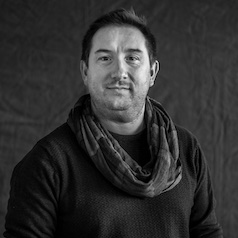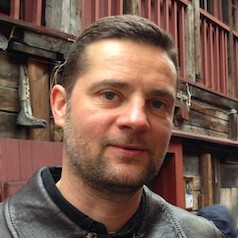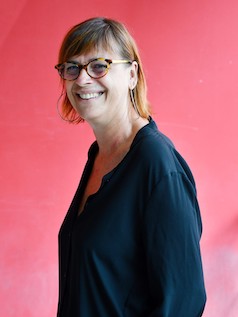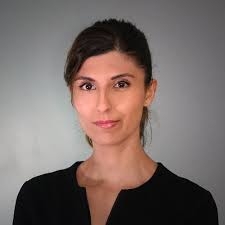Speakers(In order of intervention) Delphine Oudiette - l'Institut du Cerveau (ICM), Paris
"I obtained my PhD in cognitive neuroscience under the supervision of Prof. Isabelle Arnulf at the Sleep Pathology Department of the Pitié-Salpétrière Hospital in Paris. My thesis focused on REM sleep behavioral disorder, a disease during which patients externalize their dreams. The study of these patients allowed me to better understand the motor, dream and cognitive activity during REM sleep. https://institutducerveau-icm.org/fr/membre/?user=1285
Jérôme Laurin - Institut de Neurobiologie de la Méditerranée (INMED), Marseille
Jérôme Laurin is a doctor in human movement sciences and a lecturer at Aix-Marseille University in the Faculty of Science and Techniques of Physical Activities and Sports. After working at the Institut des Sciences du Mouvement Étienne-Jules MAREY (ISM), he continued his research at the Institut de Neurobiologie de la Méditerranée (INMED), within the team "Early activities in the developing brain". His work focuses on the influence of physical exercise on cerebral and muscular plasticity as well as on the recovery from vascular accidents.
Olivier Dupuy - Laboratory MOVE, University of Poitiers
Initially trained in "Education and Motricity" in the STAPS field at the University of Limoges as well as at the IUFM of Limoges, Olivier continued his studies in the "Sports Training" field at the University of Limoges and Bordeaux. Afterwards, he followed the Master APAS - IRHPM at the University of Poitiers, and went on to do a joint thesis between the University of Montreal and Poitiers. After obtaining his PhD, he did a post-doctoral fellowship at the Perform Center of Concordia University (Canada), during which he conducted research projects at the Geriatric Institute of Montreal and at the Montreal Heart Institute. https://move.labo.univ-poitiers.fr/
Arnaud Destrebecqz - Center for research in cognition & neurosciences, ULB, Brussels
Associate professor at the ULB in Brussels and researcher at the CRCN in the Consciousness, Cognition & Computation Group. "My research concerns the elementary mechanisms of associative learning. I am also interested in the role of consciousness and in the nature of the mental representations developed during learning. I address these issues in adults and young children." https://crcn.ulb.ac.be/members/?q=16
Emilie Combet Aspray - University of Glasgow
Senior lecturer of Human nutrition at the school of medicine, dentistry and nursing of the University of Glasgow. "My research is multi-disciplinary and focuses on how food (including whole foods, specific nutrients, and the way we eat) impacts on health throughout life, from the time peri-conception to old age. I have a particular interest on the “farm to fork to society” nexus, and its implications for all stakeholders, from a community, industry and clinical settings. It is a fascinating topic, since its implications are at the heart of the challenges faced by today’s modern society: ageing and chronic diseases. Human nutrition is a body of integrated science, underpinning much of biomedical and health research, with broad implications for public health and related policies and commercial activities. Our research in Human Nutrition at Glasgow always aims to inform, and change, practice and policy. Impactful research is at the core of our activity. Some projects are industry-led, others funded by charities and governmental bodies. Most are applied, with wide public health implications." https://combetgroup.weebly.com/
Sophie Layé - INRA, Bordeaux
Sophie Layé is the head of the NutriNeuro Institute (INRA Univ Bordeaux, Bordeaux INP) that she created in 2011. The research conducted in the Institute aims to decipher the effect of nutrition on cognitive decline and mood disorders to define a protective nutrition for the brain. She also co-heads OptiNutriBrain, an international associated laboratory, with Pr F Calon (Université Laval, Québec). Since 2018, she leads Food4BrainHealth, an international research network (Inra, CNRS, Univ Bordeaux, Univ Bourgogne, Univ Saclay, Univ Toronto, McGill, Univ Laval). Sophie is recognized for her work on the contribution of unbalanced nutrition in mood and cognitive disorders and how lipids (omega3, omega6, etc.) participate to neuroplasticity and neuroinflammation. The general objective of her team is to understand how food-derived molecules including nutrients, micronutrients, odorant molecules and bioactive metabolites from the gut microbiota influence neuroimmune interactions and neuronal networks and affect cognitive, emotional and feeding behaviors. https://www.inrae.fr/actualites/sophie-laye
Cristina Limatola - Sapienza Università, Rome
Cristina Limatola is a professor at the department of physiology and pharmacology "Vittorio Erspamer" in the Sapienza Università of Rome. Her work focuses on the study of glia cells and their homeostatic functions in the whole body. Her work is articulated in several axes such as 1. Glia-neuron communication in physiological and pathological conditions such as neurodegenerative (ALS) and focal (glioma) diseases 2. Effect of environmental stimuli in the modulation of synaptic function in physiological and pathological conditions 3. Gut-brain communication and the role of the immune system as a mediator of two-way communication 4. Role of microglia in sleep https://www.researchgate.net/profile/Cristina-Limatola
Adele Combes, PhD, Book author
After obtaining her PhD in neuroscience in 2017 in the PSL University of Paris, Adele Combes questioned the organization of the French research world, and particularly how it impacts PhD students. In her study -including 1877 testimonies-, she raises the limits of the current research system and offers solutions that would improve the PhD experience. She is the founder of the project “Vies de thèse” and author of the recently published book “Comment l'université broie les jeunes chercheurs” (2022) https://www.autrement.com/comment-luniversite-broie-les-jeunes-chercheurs/9782080270474 |










